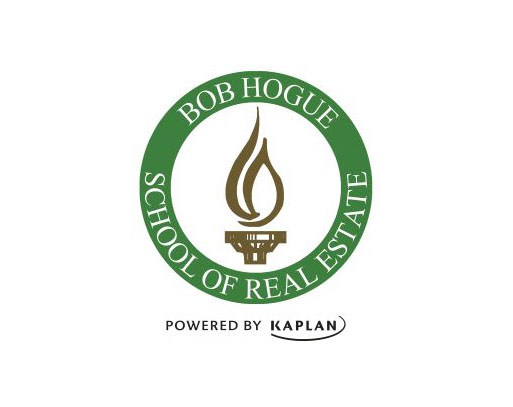
What is a Real Estate License and How Does It Work?
If you plan to become a real estate agent, obtaining your license is a must. A majority of states require that real estate agents complete a pre-licensing program, pass an examination, and renew their license each two years.
Why Get a Real Estate License?
There are many reasons to get a real estate license, including the following:
Risk Minimization
Having a real estate license can help you minimize your risks as a buyer or seller. A real estate license can help you establish credibility and provide additional oversight for your transactions.
Potential Profits
You can increase your income by getting a real estate licence. This is especially useful for investors. You can sell more properties and acquire more buyers. This will increase your profit margins.
Real Estate Brokership
The most common way to earn a real estate license is by joining a brokerage. These companies typically offer support for their real-estate agents. Depending on which company you are dealing with, this support might include administrative or marketing assistance.

These things are crucial to your success as an agency agent. It is also a smart idea to check out their reputation with clients.
Boutique Firms (Triplemint included)
For some agents, it is best to work with a small boutique firm that focuses on their support. They can be especially effective in the early stages of an agent's career because they provide comprehensive support and structural accountability to their team members.
Larger Companies
Bigger brokerages often have bigger resources, such as the ability to handle more transactions or access to more listings. They can be more costly and less hands-on, however.
There is more paperwork involved in larger firms, so there may be more red tape. Smaller boutique firms on the other side are more flexible and can offer a personalized view of real estate.
Having a real estate license can give you an edge in your industry. This will let clients know you are serious about what your do and can help them land more deals.

Licensing Process
After you have completed your education, it is time to apply for your license. After completing your education, you will need to submit an application along with your test results. Your state's realty commission office will review your application.
There are many different types of licensing, and each has its own requirements. Before you embark on your dream of becoming real estate agents, make sure that you thoroughly research the specific requirements of each. Taking the time to learn your state's licensing laws can save you time and money in the long run, as well as ensure you're doing everything required by law. A real estate license could also be the start of a rewarding and exciting career in this industry.
FAQ
What can I do to fix my roof?
Roofs can leak due to age, wear, improper maintenance, or weather issues. For minor repairs and replacements, roofing contractors are available. Contact us to find out more.
How can I find out if my house sells for a fair price?
You may have an asking price too low because your home was not priced correctly. If your asking price is significantly below the market value, there might not be enough interest. Our free Home Value Report will provide you with information about current market conditions.
How much money do I need to save before buying a home?
It all depends on how many years you plan to remain there. It is important to start saving as soon as you can if you intend to stay there for more than five years. But, if your goal is to move within the next two-years, you don’t have to be too concerned.
Should I rent or buy a condominium?
Renting might be an option if your condo is only for a brief period. Renting saves you money on maintenance fees and other monthly costs. On the other hand, buying a condo gives you ownership rights to the unit. The space is yours to use as you please.
Can I purchase a house with no down payment?
Yes! Yes. These programs include government-backed loans (FHA), VA loans, USDA loans, and conventional mortgages. For more information, visit our website.
What is the average time it takes to sell my house?
It depends on many factors including the condition and number of homes similar to yours that are currently for sale, the overall demand in your local area for homes, the housing market conditions, the local housing market, and others. It may take up to 7 days, 90 days or more depending upon these factors.
Is it possible for a house to be sold quickly?
It might be possible to sell your house quickly, if your goal is to move out within the next few month. However, there are some things you need to keep in mind before doing so. First, find a buyer for your house and then negotiate a contract. You must prepare your home for sale. Third, your property must be advertised. Finally, you need to accept offers made to you.
Statistics
- The FHA sets its desirable debt-to-income ratio at 43%. (fortunebuilders.com)
- Private mortgage insurance may be required for conventional loans when the borrower puts less than 20% down.4 FHA loans are mortgage loans issued by private lenders and backed by the federal government. (investopedia.com)
- It's possible to get approved for an FHA loan with a credit score as low as 580 and a down payment of 3.5% or a credit score as low as 500 and a 10% down payment.5 Specialty mortgage loans are loans that don't fit into the conventional or FHA loan categories. (investopedia.com)
- This means that all of your housing-related expenses each month do not exceed 43% of your monthly income. (fortunebuilders.com)
- Based on your credit scores and other financial details, your lender offers you a 3.5% interest rate on loan. (investopedia.com)
External Links
How To
How to Manage A Rental Property
Although renting your home is a great way of making extra money, there are many things you should consider before you make a decision. We'll help you understand what to look for when renting out your home.
This is the place to start if you are thinking about renting out your home.
-
What should I consider first? You need to assess your finances before renting out your home. You may not be financially able to rent out your house to someone else if you have credit card debts or mortgage payments. It is also important to review your budget. If you don't have enough money for your monthly expenses (rental, utilities, and insurance), it may be worth looking into your options. It may not be worth it.
-
How much does it cost for me to rent my house? There are many factors that go into the calculation of how much you can charge to let your home. These factors include your location, the size of your home, its condition, and the season. Prices vary depending on where you live so it's important that you don't expect the same rates everywhere. Rightmove has found that the average rent price for a London one-bedroom apartment is PS1,400 per mo. This would translate into a total of PS2,800 per calendar year if you rented your entire home. While this isn't bad, if only you wanted to rent out a small portion of your house, you could make much more.
-
Is it worth it? You should always take risks when doing something new. But, if it increases your income, why not try it? Make sure that you fully understand the terms of any contract before you sign it. You will need to pay maintenance costs, make repairs, and maintain the home. Renting your house is not just about spending more time with your family. These are important issues to consider before you sign up.
-
Are there benefits? There are benefits to renting your home. Renting out your home can be used for many reasons. You could pay off your debts, save money for the future, take a vacation, or just enjoy a break from everyday life. You will likely find it more enjoyable than working every day. If you plan ahead, rent could be your full-time job.
-
How do you find tenants? After you have decided to rent your property, you will need to properly advertise it. You can start by listing your property online on websites such as Rightmove and Zoopla. Once you receive contact from potential tenants, it's time to set up an interview. This will help you evaluate their suitability as well as ensure that they are financially secure enough to live in your home.
-
What can I do to make sure my home is protected? If you don't want to leave your home empty, make sure that you have insurance against fire, theft and damage. You'll need to insure your home, which you can do either through your landlord or directly with an insurer. Your landlord will typically require you to add them in as additional insured. This covers damages to your property that occur while you aren't there. However, this doesn't apply if you're living abroad or if your landlord isn't registered with UK insurers. You will need to register with an International Insurer in this instance.
-
You might feel like you can't afford to spend all day looking for tenants, especially if you work outside the home. Your property should be advertised with professionalism. It is important to create a professional website and place ads online. Additionally, you'll need to fill out an application and provide references. Some people prefer to do the job themselves. Others prefer to hire agents that can help. In either case, be prepared to answer any questions that may arise during interviews.
-
What should I do once I've found my tenant? You will need to notify your tenant about any changes you make, such as changing moving dates, if you have a lease. If this is not possible, you may negotiate the length of your stay, deposit, as well as other details. Keep in mind that you will still be responsible for paying utilities and other costs once your tenancy ends.
-
How do I collect rent? When the time comes for you to collect the rent you need to make sure that your tenant has been paying their rent. You'll need remind them about their obligations if they have not. After sending them a final statement, you can deduct any outstanding rent payments. If you're struggling to get hold of your tenant, you can always call the police. If there is a breach of contract they won't usually evict the tenant, but they can issue an arrest warrant.
-
How do I avoid problems? It can be very lucrative to rent out your home, but it is important to protect yourself. Consider installing security cameras and smoke alarms. Make sure your neighbors have given you permission to leave your property unlocked overnight and that you have enough insurance. You must also make sure that strangers are not allowed to enter your house, even when they claim they're moving in the next door.